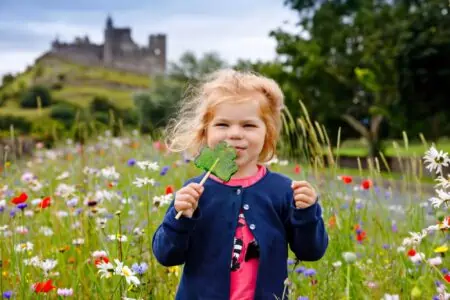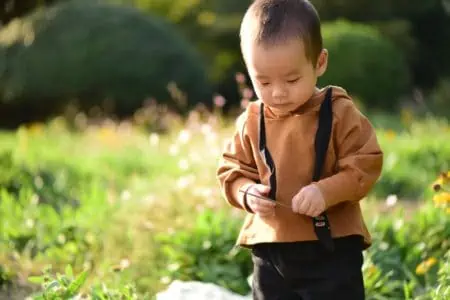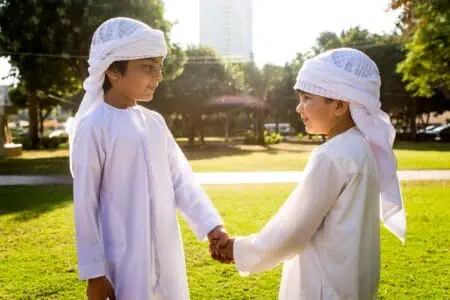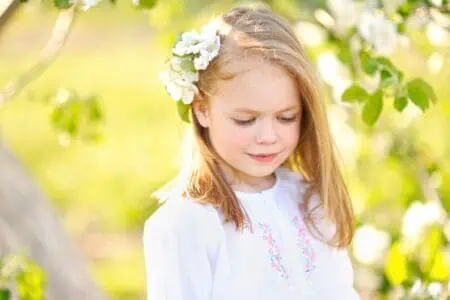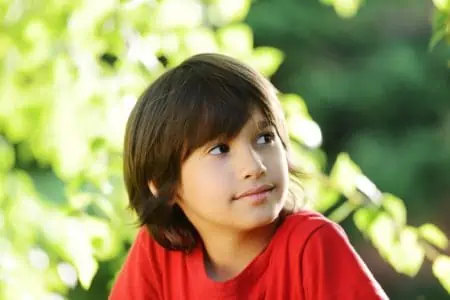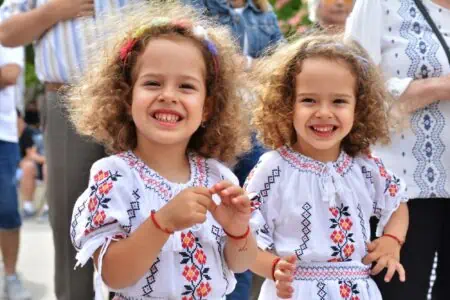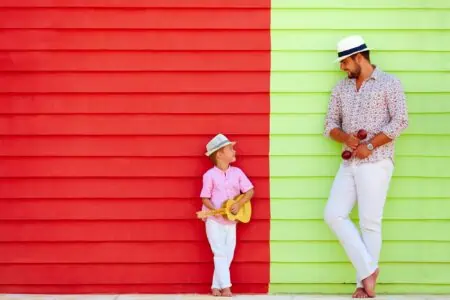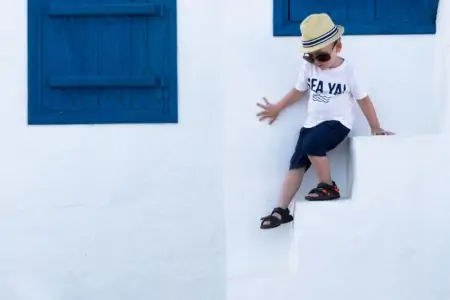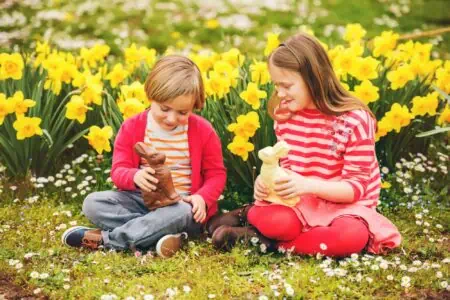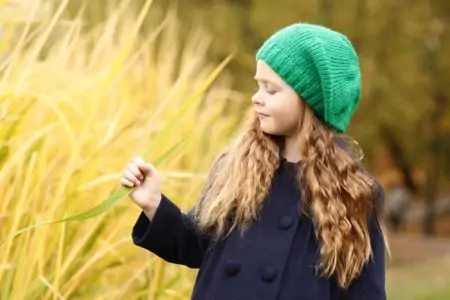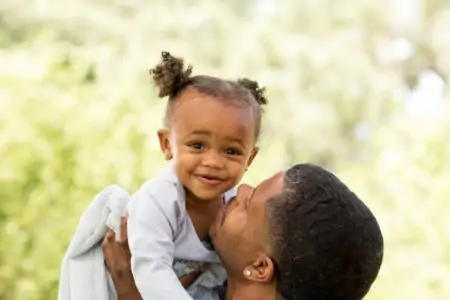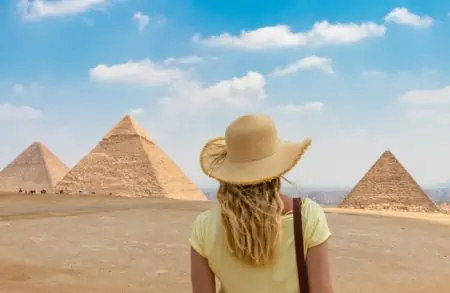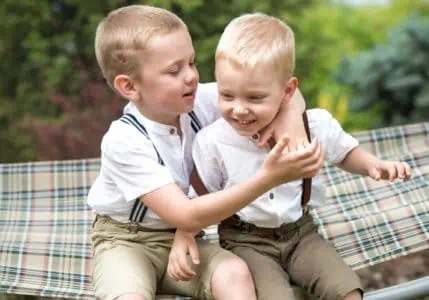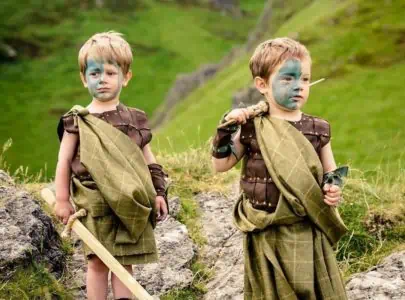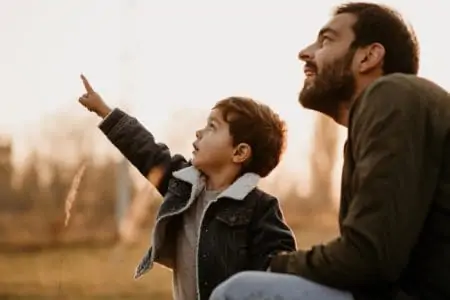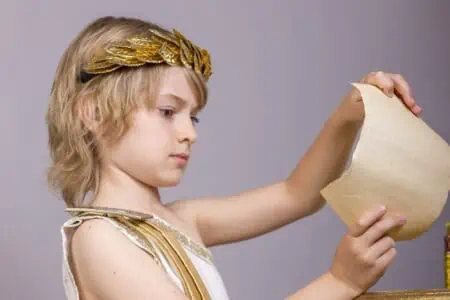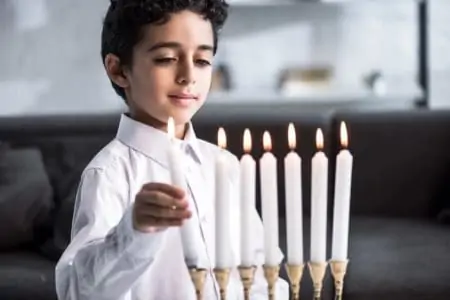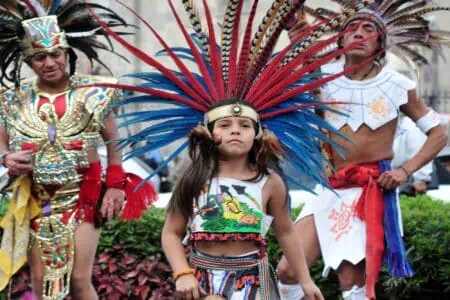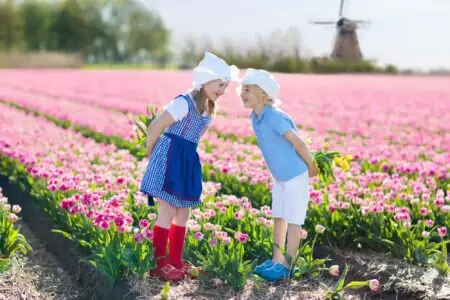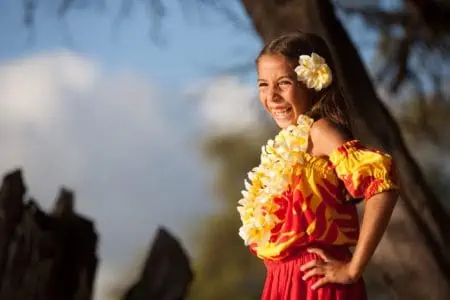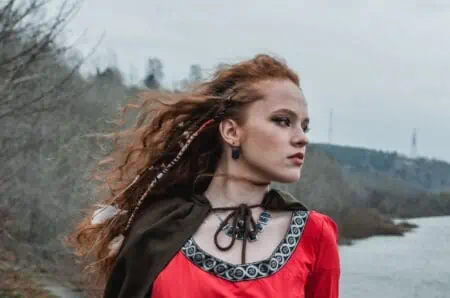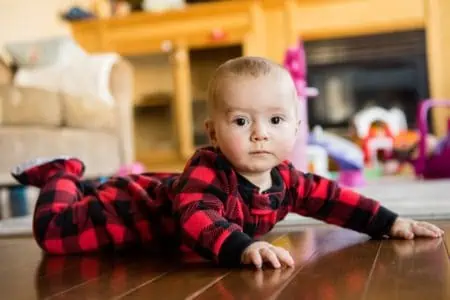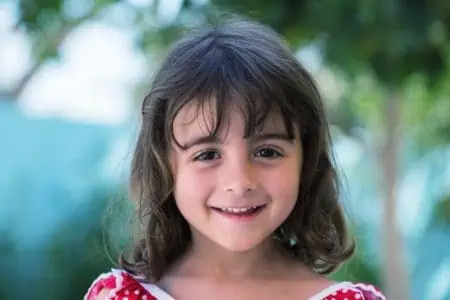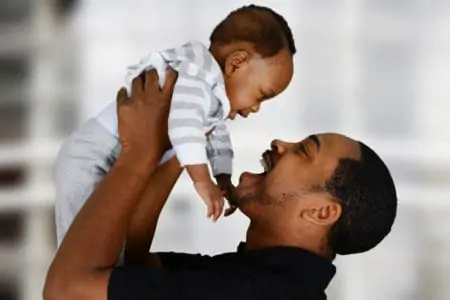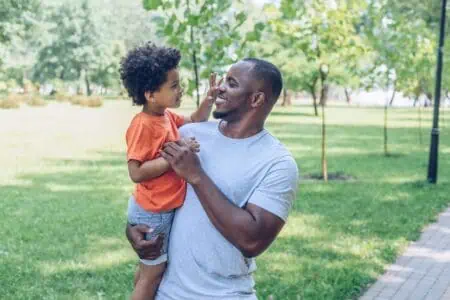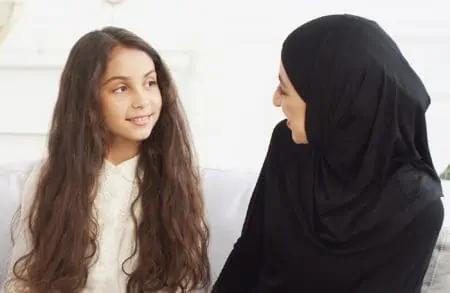There’s a mountain of history to climb when learning about Irish last names. They have a long lineage of complicated spelling variations and can drive you crazy when you try to understand the full picture.
This is one mountain you can climb with our easy-to-understand guide to Irish surnames that cover multiple eras. We’ll walk you through the history, meanings, variations, and the most famous bearers of the name. You may even find yourself an expert in Irish name history by the time you reach the end of the alphabet.
100 Popular Irish Last Names
Check out the coolest Irish last names the emerald isle has to share here.
Ahearne
Ahearne is based on O’Echthighern, composed of “ó,” meaning “grandson,” “e(a)ch,” meaning “horse,” and “tighe(a)rn,” meaning “lord.” The Ahearne family motto is “I rise through difficulties.”
- Origin: Celtic
- Meaning: House lord
- Pronunciation: Ah-HHERN
- Variations: Ahearn, Aherne
- Namesakes: John Ahearne, the British president of the International Ice Hockey Federation from 1951 to 1975. Joe Ahearne, an Irish writer known for the TV series Doctor Who.
- Popularity: Ahearne is mainly used in Ireland, ranking 1,208th in 2014.
Armstrong
Armstrong began as a Scottish clan surname still found in Ireland among Scots-Irish descendants. Their strength has been memorialized in the song: “For when they see the blazing bale / Elliots and Armstrongs never fail.”
- Origin: Gaelic, Scottish
- Meaning: Strong armed
- Pronunciation: AARM-Straong
- Variations: Armstrang, Armstron
- Namesakes: Craig Armstrong, a Scottish composer known for Baz Luhrmann’s Romeo + Juliet (1996). Gerard Armstrong, a Northern Ireland footballer for Tottenham Hotspur.
- Popularity: Armstrong ranked 1,795th worldwide, is primarily used in the U.S. and ranked 29th in Northern Ireland in 2014.
Boyle
Boyle is a variation of O’Boyle, from the Irish Ó’Baoghill. It’s made up of the Irish “geall,” meaning “vain pledge.” Boyle may also be associated with O’Baoighill, meaning “family of the rash or angry person.”
- Origin: Irish, Scottish
- Meaning: Profitable pledges
- Pronunciation: BOY-ehl
- Variations: O’Boyle, Boile, Boyall
- Namesakes: James Boyle, Chairman of the National Library of Scotland until 2016. Lara Flynn Boyle, an American actress, known for the TV series Twin Peaks (1990 to 1991).
- Popularity: Boyle is very rare worldwide and primarily used in the U.S., where it ranked 866th in 2000.
Braddock
Braddock has Celtic origins, also meaning “dweller at a Gorge.” Braddock is also the name of a village in Cornwall, England.
- Origin: Gaelic, English
- Meaning: By the bride-oak
- Pronunciation: BRAE-Dyk
- Variations: Braddocke
- Namesakes: James J. Braddock, an American boxer and the world heavyweight champion from 1935 to 1937. Elizabeth Braddock, a British Member of Parliament from 1945 to 1970.
- Popularity: Braddock is very rare worldwide and mainly used in the U.S.
Braniff
Braniff comes from the Gaelic Ó’Branduibh, meaning “descendant of Brandubh.” It’s made up of “bran,” meaning “raven” and “dubh,” meaning “black.”
- Origin: Gaelic
- Meaning: Black Raven
- Pronunciation: BRAN-ihf
- Variations: Branniff, Brannif
- Namesakes: Alberto Braniff, a Mexican airplane pilot and the first aviator in Latin America. Paul Braniff, an Irish hurler for the Down senior team.
- Popularity: Braniff is very rare worldwide, primarily used in the U.S., and ranked 860th in Northern Ireland in 2014.
Branley
Branley comes from the Irish O’Branghaile, based on “branghal,” meaning “raven valor.” Most Branleys were found in the U.S. in 1920 but originated in East Galway, Ireland, where it remains centered.
- Origin: Irish, English
- Meaning: Raven meadow
- Pronunciation: BRAEN-Liy
- Variations: Branleah, Branly
- Popularity: Branley is very rare worldwide and mostly used in the U.S.
Brennan
Brennan comes from the Gaelic “O’Braondin. It originally meant “descendant of Braonán.” It could relate to the boy’s name Brendan for a totally Irish dose of B’s.
- Origin: Gaelic
- Meaning: Sorrow
- Pronunciation: BREHN-ahn
- Variations: Brenan, Brennen
- Namesakes: Brian Anthony Brennan, an Irish-Canadian staff writer with the Calgary Herald. Patricia Brennan, the American director of the National Library of Medicine.
- Popularity: Brennan is uncommon worldwide, mainly used in the U.S., and ranked 13th in Ireland in 2014.
Breslin
Breslin originated with the Irish Ó’Breisleáin. The inspiration may be an Irishman named Breisel in the 10th- and 11th-centuries.
- Origin: Gaelic
- Meaning: Strife
- Pronunciation: BREH-Zluhn
- Variations: O’Breslin
- Namesakes: Abigail Breslin, an American actress first known for the film Little Miss Sunshine (2006). Jimmy Breslin, an American journalist who, wrote a column for the New York Daily News Sunday edition.
- Popularity: Breslin is rare worldwide, mostly used in the U.S., and ranked 381st in Ireland in 2014.
Brodrick
Brodrick is an Anglo form of the Irish Ó’Bruadair, meaning “descendant of Bruadar.” It was found in the U.S., UK, Canada, and Scotland between 1840 and 1920 and was most popular in the U.S. in 1880.
- Origin: Irish
- Meaning: Brother
- Pronunciation: BRAHD-Rihk
- Variations: Brodrik
- Namesakes: Charles Brodrick, the Archbishop of Cashel in the Church of Ireland from 1801 to 1822. George Brodrick, President of the Oxford Union from 1854 to 1855.
- Popularity: Brodrick is rare worldwide and primarily used in the U.S.
Burke
Burke began as the Anglo-Norman De Burgh, which came to Ireland with the arrival of an 18th-century knight. It’s based on the Old English “burh,” and German “burg,” meaning “fortification.”
- Origin: Anglo-Norman Irish
- Meaning: Of the borough
- Pronunciation: BERK
- Variations: Bourke, Burk
- Namesakes: Anna Burke, the Speaker of the Australian House of Representatives from 2012 to 2013. David Burke, an English actor, known for the Granada TV series The Adventures of Sherlock Holmes.
- Popularity: Burke is uncommon worldwide and mainly used in the U.S., where it ranked 246th in 2010.
Byrne
Byrne was originally the Celtic surname O’Broin, meaning “descendant of Bran.” Bran was the 11th-century king of Leinster. Beyond Ireland, Byrne is most popular in the U.S. and New Zealand.
- Origin: Gaelic
- Meaning: Raven
- Pronunciation: BEHRN
- Variations: Byrn, Byrnes
- Namesakes: Gabriel Byrne, an Irish actor and winner of the Irish Film and Television Academy Lifetime Achievement Award in 2018. Shay Byrne, an Irish Radio presenter for RTÉ Radio 1’s Rising Time.
- Popularity: Byrne is uncommon worldwide and mainly used in Ireland, where it ranked 3rd in 2014.
Callan
Callan originally meant “descendant of Cathalán.” It’s also a first name used as a nickname for Cathal and possibly related to Cahill.
- Origin: Gaelic
- Meaning: Battle, rock
- Pronunciation: KAEL-aen
- Variations: Callann, Callen
- Namesakes: David Callan, an Irish-Australian comedian, and a Triple J disc jockey. Michael Callan, an Irish novelist and a story editor with BBC Television.
- Popularity: Callan is very rare worldwide and mostly used in the U.S.
Campbell
Campbell comes from the Gaelic Caimbeul, meaning “wry mouth.” It was initially given to an ancient Irish clan chief but has remained popular to this day.
- Origin: Gaelic
- Meaning: Crooked mouth
- Pronunciation: KAEM-Bahl
- Variations: Cambell, Cambel
- Namesakes: Joseph Campbell, an American writer known for the book The Hero with a Thousand Faces (1949). Tara Campbell, a Canadian water polo player and bronze medalist at the 2005 World Aquatics Championships.
- Popularity: Campbell ranked 657th worldwide, 43rd in the U.S., and 6th in Scotland in 2019.
Carney
Carney is based on the Gaelic O’Cearnaigh, taken from “cearnach,” meaning “victorious.” It remains associated with both warriors and soldiers.
- Origin: Gaelic
- Meaning: Victory
- Pronunciation: KAAR-Niy
- Variations: Kearney, O’Carney
- Namesakes: Art Carney, an American actor best known for the TV sitcom The Honeymooners (1955 to 1956). John Carney Jr., the 74th governor of Delaware since 2017.
- Popularity: Carney is rare worldwide, mainly used in the U.S., and ranked 471st in Ireland in 2014.
Cashel
Cashel comes from the Irish “caiseal,” meaning “castle.” It also means “stone fort,” so it’s a well-protected family name.
- Origin: Celtic, Latin
- Meaning: Fortress
- Pronunciation: KAE-Shahl
- Variations: Cashell
- Namesakes: Ernest Cashel, an American outlaw famous in western Canada for escaping from custody.
- Popularity: Cashel is rare worldwide and mostly used in the U.S.
Cassady
Cassady originally meant “descendant of Caiside.” Cassady also means “clever” and has become a popular first name for girls in the U.S.
- Origin: Irish, Gaelic
- Meaning: Curly-headed
- Pronunciation: KAE-sah-Diy
- Variations: Cassidy, Cassedy
- Namesakes: Harry Cassady, an American baseball player for the 1904 Pittsburgh Pirates. John Cassady, the Commander in Chief of the U.S. Naval Forces from 1954 to 1956.
- Popularity: Cassady is rare worldwide and primarily used in the U.S.
Cavanaugh
Cavanaugh is an English version of the Gaelic Caomhanach, meaning “follower of (St.) Caomhan.” It’s a diminutive of “caomh,” meaning “gentle” or “tender.”
- Origin: Irish
- Meaning: Handsome
- Pronunciation: KAE-vah-Nao
- Variations: Kavanagh, Cavanagh, Kavanaugh
- Namesakes: Michael Cavanaugh, an American actor appearing in the TV series 24. Thomas Cavanaugh, an American Medal of Honor recipient in the Spanish-American War.
- Popularity: Cavanaugh is rare worldwide and mainly used in the U.S.
Clary
Clary may be associated with both Cleary and McClary. It comes from the English “clary” and may stem from the French Clair, initially as the Latin “clarus.”
- Origin: Irish, English
- Meaning: Bright
- Pronunciation: KLAH-Riy
- Variations: Cleary, Clarey
- Namesakes: Julian Clary, the English winner of Celebrity Big Brother 10 in 2012. Scott Clary, an American swimmer and gold medalist at the 2012 Summer Olympics.
- Popularity: Clary is rare worldwide and mostly used in the U.S.
Collins
Collins may be a Viking name from the Old Norse “kollungr,” meaning “dark.” It’s derived from “cuilein,” meaning “darling,” a term of endearment once given to babies and animals.
- Origin: Gaelic, Norse
- Meaning: Darling
- Pronunciation: KAAH-Lihnz
- Variations: Collin, Collen, Collens
- Namesakes: Michael Collins, an Irish revolutionary figure in the war for Irish independence. Paul Collins, an Australian fantasy writer, known for the series The Jelindel Chronicles.
- Popularity: Collins ranked 820th worldwide and is primarily used in the U.S., where it ranked 52nd in 2019.
Conlan
Conlon was used for an Irish noble family, originally spelled Ó’Connalláin. Conlan might be as old as Medieval times, but it’s often found in Ireland today.
- Origin: Celtic
- Meaning: Hero
- Pronunciation: KAAN-Lahn
- Variations: Conlon, Connellan
- Namesakes: Gerard Conlon, an Irish member of the Guildford Four wrongly convicted of being a Provisional IRA bomber. Neil Conlan, an Australian footballer with the Tasmania Australian rules football team.
- Popularity: Conlan is rare worldwide, mainly used in the U.S., and ranked 962nd in Ireland in 2014.
Connelly
Connelly comes from the Irish Conghalach, based on “congal,” meaning “conflict.” Connelly also means “hound variant,” which gives this beast name tons of history.
- Origin: Irish
- Meaning: Fierce as a hound
- Pronunciation: KAAN-eh-Liy
- Variations: Connolly
- Namesakes: Jennifer Connelly, an American actress who won the Oscar for Best Supporting Actress for the film A Beautiful Mind (2001). Tina Connelly, a Canadian track and field athlete who competed at the 2000 Summer Olympics.
- Popularity: Connelly is rare worldwide and primarily used in the U.S., ranking 1,537th in 2010.
Cosgrove
Cosgrove comes from the Gaelic “corcrac,” meaning “victorious.” Cosgrove is also a place name meaning “of Cosgrove,” a town in Northamptonshire, England.
- Origin: Irish, English
- Meaning: Victorious
- Pronunciation: KAAS-Growve
- Variations: Cosgrave
- Namesakes: Michael Cosgrove, an American musician and member of the rock band Alien Ant Farm.
- Popularity: Cosgrove is rare worldwide, primarily used in the U.S., and ranked 418th in Ireland in 2014.
Costello
Costello is an English form of the Gaelic MacOisdealbhaigh, originally meaning “son of Oisdealbhach.” It was also a personal name composed of “os,” meaning “deer fawn” and “dealbhach,” meaning “resembling.”
- Origin: Gaelic, Latin
- Meaning: Deer fawn like
- Pronunciation: Cos-TELL-oh
- Variations: Costelloe, Costellow
- Namesakes: Frank Costello (born Francesco Castiglia), an Italian-American crime boss of the Luciano crime family. John Costello, the Irish Taoiseach from 1948 to 1951 and from 1954 to 1957.
- Popularity: Costello is rare worldwide and mainly used in the U.S., where it ranked 1,093rd in 2010.
Costigan
Costigan was originally MacOistigin and appears most in Tipperary and Kilkenny. Costigan may be associated with the Fitzpatricks, a noble name in Irish history.
- Origin: Irish
- Meaning: Son of Ostigan
- Pronunciation: CAWS-tih-Gan
- Variations: McCostigan, Costagan
- Namesakes: Sandra Costigan, an American field hockey player who competed in the 1988 Summer Olympics. Peter Costigan, Lord Mayor of Melbourne from 1999 to 2001.
- Popularity: Costigan is rare worldwide and mostly used in the U.S.
Crilly
Crilly comes from the medieval Gaelic MacRaghallaigh, meaning “son of the descendant of the rakish one.” It’s also related to Crawley and may be a variation of Reilly.
- Origin: Gaelic
- Meaning: Rakish one
- Pronunciation: CHRIL-ee
- Variations: Crily, O’Crilly, MacCrilly
- Namesakes: Mark Crilly, a Scottish footballer and co-manager of Kilbirnie Ladeside. Sarah Crilly, a Scottish footballer for the Scottish Women’s Premier League.
- Popularity: Crilly is rare worldwide, primarily used in the U.S., and ranked 621st in Northern Ireland in 2014.
Cummings
Cummings was once a Norman geographical name for “de Comines.” The closely-related Cumming clan has the motto “courage,” with the crest of a lion holding a dagger.
- Origin: Irish, Norman
- Meaning: Crooked
- Pronunciation: KUH-mihngz ·
- Variations: Cumming, Cummins
- Namesakes: Carol Cummings, a Jamaican sprinter who competed at the 1976 Summer Olympics. Laurence Cummings, the British music director of the Academy of Ancient Music.
- Popularity: Cummings is rare worldwide and mainly used in the U.S., where it ranked 1,731st in 2014.
Cunningham
Cunningham was a place name meaning “of Cunningham.” It’s also related to the first name Conn, meaning “leader chief.”
- Origin: Irish
- Meaning: Leader chief
- Pronunciation: KUH-nihng-Hhaem
- Variations: Cunninghame, Cunnyngham
- Namesakes: Larry Cunningham, an Irish country music singer of the showband scene in the 1960s and 1970s. Sophie Cunningham, an Australian trade publisher at Allen & Unwin.
- Popularity: Cunningham is uncommon worldwide, mostly used in the U.S., and ranked 26th in Northern Ireland in 2014.
Cusack
Cusack was originally the Norman name Cussac, a town in Guienne, France. It’s more widely used in Ireland, which traveled through England after the 12th-century Norman invasion.
- Origin: Irish, Norman
- Meaning: Of Cussac (France)
- Pronunciation: CUE-zack
- Variations: Cusack, Cussack
- Namesakes: John Cusack, an American actor, best known for the 1980s teen romance movie Say Anything…Dónal Cusack, an Irish hurler for Cork Premier Championship club Cloyne.
- Popularity: Cusack is rare worldwide, primarily used in the U.S., and ranked 352nd in Ireland in 2014.
Daley
Daley is based on the Irish Ó’Dálaigh. Dalach once meant “one who is present at assemblies,” which makes sense since “dail” is the name of the parliament of the Republic of Ireland.
- Origin: Irish, English
- Meaning: Assembly
- Pronunciation: DEY-Liy
- Variations: Daly, O’Daley
- Namesakes: Thomas Daley, a British diver and gold medallist at the 2020 Olympics. Vi Daley, an American alderman in the Chicago City Council.
- Popularity: Daley is rare worldwide and mainly used in the U.S., ranking 1,427th in 2010.
Davenport
Davenport consists of the English “donn,” meaning “brown-haired man,” “dubh,” meaning “black,” and “artach,” meaning “nobleman.” It’s also a place name meaning “of Davenport,” a town in East Cheshire, England.
- Origin: Irish, English
- Meaning: Lives by the stream that leads to the bay
- Pronunciation: DAV-en-Port
- Variations: Davenporte
- Namesakes: Lindsay Davenport, an American tennis player and the top-ranked singles player for 98 weeks. William Davenport, the American publisher of Unsound magazine.
- Popularity: Davenport is rare worldwide and mainly used in the U.S., ranking 538th in 2014.
Delahunt
Delahunt comes from the Gaelic O’ Dulchaointigh. It originally meant “descendant of Dulchaointeach,” made up of “dul,” meaning “satirist,” and “caointeach,” meaning “plaintive.”
- Origin: Gaelic
- Meaning: Male descendant of the satirist
- Pronunciation: DEH-luh-Huhnt
- Variations: Delahunty
- Namesakes: James Delahunt, a Scottish presenter for STV’s program Scotsport. Meaghan Delahunt, an Australian novelist, and winner of the Flamingo/HQ national short story prize in 1997.
- Popularity: Delahunt is very rare worldwide, mostly used in the U.S., and ranked 1,724th in Ireland in 2014.
Devlin
Devlin was once O’Dobhailen in Irish, meaning “descendant of Dobhalen.” It also means “raging valor,” made up of the Irish “dobh,” meaning “boisterous,” and “gal,” meaning “valor.”
- Origin: Gaelic
- Meaning: Fierce courage
- Pronunciation: DEHV-Lihn
- Variations: Develin, Devellen
- Namesakes: Matt Devlin, an American TV announcer for the Toronto Raptors of the NBA. Bernard Devlin, a Canadian film producer who helped develop the National Film Board of Canada.
- Popularity: Devlin is rare worldwide, mostly used in the U.S., and ranked 49th in Northern Ireland in 2014.
Dillon
Dillon appears as the Irish Díolmhain but has French roots as the name of a town in Lyon. It was used as a nickname for a “brave warrior.”
- Origin: Irish, Norman
- Meaning: Faithful, true
- Pronunciation: DIHL-ahn
- Variations: Dilon, Dillan
- Namesakes: Matt Dillon, an American actor first known for the film The Outsiders (1983). Scott Dillon, an Australian surfer, inducted into the Surfing Hall of Fame in 2004.
- Popularity: Dillon is rare worldwide, primarily used in the U.S., and ranked 137th in Ireland in 2014.
Doherty
Doherty comes from the Gaelic O’Dochartaigh, meaning “descendant of Dochartach.” It uses the Anglo-Irish spelling, while Docherty is found in Scotland, and Daugherty appears in Manchester.
- Origin: Gaelic
- Meaning: Unlucky
- Pronunciation: DOW-er-Tiy
- Variations: O’Doherty, Dougharty, Docharty
- Namesakes: Colette Doherty, winner of the Irish Poker Open in 1980 and 1991. Berlie Doherty, an English children’s book author and two-time Carnegie Medal winner.
- Popularity: Doherty is rare worldwide, primarily used in the U.S., and ranked 17th in Northern Ireland in 2014.
Dolan
Dolan is an Anglo version of the Gaelic Ó’Dubhláin. It’s made up of “dubh,” meaning “black” and “slán,” meaning “challenge.” Dolan also means “bold” and “black-haired” as important attributes.
- Origin: Irish
- Meaning: Dark
- Pronunciation: DOH-lan
- Variations: Doolan, O’Dolan
- Namesakes: Séamus Dolan, the Irish Cathaoirleach of Seanad Éireann from 1977 to 1981. Peter Dolan, an American business executive.
- Popularity: Dolan is rare worldwide and mainly used in the U.S., where it ranked 1,283rd in 2010.
Donahue
Donahue is composed of “donn,” meaning “brown-haired man,” and “cath,” meaning “battle.” It sometimes appears as Duncan in Scotland.
- Origin: Irish
- Meaning: Dark warrior
- Pronunciation: DAA-nah-Hhyuw
- Variations: Donahoe, Donahue, Donohue
- Namesakes: Phil Donahue, an American talk show host of The Phil Donahue Show (1967 to 1996.) Ann Donahue, an American writer/creator of the CSI franchise TV series.
- Popularity: Donahue is rare worldwide and primarily used in the U.S., ranking 984th in 2014.
Dornan
Dornan originally appeared as the Gaelic Ó’Dornáin, made up of “dorn,” meaning “fist.” It’s one of the Irish family names that first appeared in Northern Ireland, where it’s still used most today.
- Origin: Celtic
- Meaning: Fist
- Pronunciation: DAOER-naan
- Variations: Dornain
- Namesakes: Jamie Dornan, a Northern Irish actor, listed 32nd on The Irish Times’ list of Ireland’s greatest film actors. Bob Dornan, an American politician in the U.S. House of Representatives from 1977 to 1983 and 1985 to 1997.
- Popularity: Dornan is rare worldwide, mainly used in the U.S., and ranked 596th in Northern Ireland in 2014.
Dowd
Dowd is one of those ancient Irish surnames once found throughout Ireland but less so today. Dowd also means “dark-eyed” for a well-known clan that’s spread far and wide.
- Origin: Gaelic
- Meaning: Dark black
- Pronunciation: DAWD
- Variations: O’Dowd, Dowdie, Doud
- Namesakes: Ann Dowd, an American actress and winner of the National Board of Review Award for Best Supporting Actress in 2012 for Compliance. Nicholas Dowd, an American ice hockey player for the Washington Capitals.
- Popularity: Dowd is very rare worldwide and mostly used in the U.S.
Doyle
Doyle is one of many Irish last names with Norman origins, first appearing as de Oilgi. Doyle is the 12th most common surname in Ireland. Its “dark foreigner” meaning is associated with famous Danish Vikings who made their way to Ireland.
- Origin: Anglo-Norman Irish
- Meaning: Dark foreigner
- Pronunciation: DOYL
- Variations: O’Doyle
- Namesakes: Brian Doyle-Murray, an American actor and comedian who is the older brother of Bill Murray. Kevin Doyle, an Irish former footballer for Wexford F.C.
- Popularity: Doyle is uncommon worldwide and primarily used in the U.S., where it ranked 441st in 2010.
Dugan
Dugan comes from the Irish Dubhagan, which uses the root “dubh,” meaning “black.” It may have meant “small, dark one,” describing the appearance of the original Dugans of Ireland.
- Origin: Irish
- Meaning: Black, dark
- Pronunciation: DUW-JHihn
- Variations: Duggan, Dougan
- Namesakes: Robert Dugan, an Australian cricketer for South Australia. Ianthe Dugan, an American investigative reporter for The Wall Street Journal for 18 years.
- Popularity: Dugan is rare worldwide, mainly used in the U.S., and ranked 1,217th in Northern Ireland in 2014.
Egan
Egan is composed of “aedh,” meaning “little fire,” and the diminutive “an.” Egan also means “endowed with youthful vigor,” which makes this old name new again.
- Origin: Celtic
- Meaning: Little fire
- Pronunciation: IY-Gaen
- Variations: Eagan, MacEgan
- Namesakes: Connie Egan, a Northern Irish Member of the Legislative Assembly. Philip Egan, the eighth English Bishop of Portsmouth.
- Popularity: Egan is rare worldwide, mostly used in the U.S., and ranked 66th in Ireland in 2014.
Ennis
Ennis is a short version of the Gaelic MagAonghuis. It’s based on the Irish “Inis,” meaning “island,” and remains less typical among Irish surnames.
- Origin: Gaelic
- Meaning: Son of Angus
- Pronunciation: EHN-Nihs
- Variations: Enis
- Namesakes: Garth Ennis, a Northern Irish-American comics writer known for the Vertigo series Preacher. Jaron Ennis, an American boxer and gold medalist at the 2015 U.S. National Golden Gloves Championships.
- Popularity: Ennis is rare worldwide and primarily used in the U.S., where it’s still uncommon.
Fagan
Fagan is a shorter form of the Irish Faodhagan. It came to Ireland via the 12th-century Norman invasion but is now considered 100% Irish.
- Origin: Norman-Irish
- Meaning: Rural
- Pronunciation: FEY-Gahn
- Variations: Fagen
- Namesakes: Florence Fagan, a Lord Lieutenant of Hampshire, England, from 1994 to 2014. Patsy Fagan, an Irish snooker champion at the 1977 UK Championship.
- Popularity: Fagan is rare worldwide, mainly used in the U.S., and ranked 213th in Ireland in 2014.
Farley
Farley is one of those geographical Irish last names that start with F, this one meaning “Of Fairleigh.” It’s also based on the English “fearn,” meaning “fern” and “leah,” meaning “woodland clearing.”
- Origin: Irish, English
- Meaning: Man of valor
- Pronunciation: Farleigh, Fairley
- Variations: FAAR-Liy
- Namesakes: Jim Farley, the American CEO of Ford. Carole Farley, an American soprano principal singer at the Metropolitan Opera.
- Popularity: Farley is rare worldwide and primarily used in the U.S., where it ranked 867th in 2014.
Finnerty
Finnerty derives from “fionn,” meaning “white” and “fair.” Finnerty is one of the oldest Irish family names for someone with white skin or red hair, like Queen Meave of Connacht.
- Origin: Irish
- Meaning: Fair snow
- Pronunciation: FIH-ner-Tee
- Variations: Finnarty, O’Finnerty
- Namesakes: Robert Finnerty, a Gaelic footballer for the Galway county team. Dan Finnerty, an American actor, known for the film Old School.
- Popularity: Finnerty is rare worldwide, mainly used in the U.S., and ranked 426th in Northern Ireland in 2014.
FitzGerald
FitzGerald combines the prefix “fitz,” from the Latin “filius” and Gerald. It also means “son of the ruler with a spear,” for the toughest Irish clan there is.
- Origin: Hiberno-Norman
- Meaning: Son of Gerald
- Pronunciation: Fihts-JHEHR-owld
- Namesakes: Eithne FitzGerald, the Irish Teachta Dála for Dublin South from 1992 to 1997. John Fitzgerald, the maternal grandfather of President John F. Kennedy.
- Popularity: FitzGerald is uncommon worldwide and primarily used in the U.S., ranking 430th in 2010.
Flannagan
Flannagan is made up of the Gaelic “flann,” meaning “red” or “ruddy.” The stereotypical feature of a red-haired Irishman is alive and well in Flannagan, which originated in County Roscommon.
- Origin: Celtic
- Meaning: Red complexion
- Pronunciation: FLAE-nah-Gahn
- Variations: Flanagan, Flanigan, Flannigan
- Namesakes: Charlie Flannagan, an Australian rules footballer for Richmond in the Victorian Football League. John Flannagan, an American U.S. Navy sailor and a recipient of the Medal of Honor.
- Popularity: Flannagan is very rare worldwide and primarily used in the U.S., where it’s very uncommon.
Gallagher
Gallagher comes from the Gaelic “gallchobhar,” meaning “foreign help.” It originated in County Donegal and was used for many immigrants of Irish descent.
- Origin: Celtic
- Meaning: Help
- Pronunciation: GAHL-aa-Jher
- Variations: Gallager, Gallaher
- Namesakes: Noel Gallagher, an English musician, and member of the rock band Oasis. Peter Gallagher, an American actor, known for the TV series The O.C. from 2003 to 2007.
- Popularity: Gallagher is uncommon worldwide, mainly used in the U.S. and ranked 23rd in Ireland in 2014.
Garrity
Garrity was originally the Gaelic MacOireachtaigh, meaning “son of Oireachtach.” It’s taken from “oireachtach,” meaning “member of a court.”
- Origin: Gaelic
- Meaning: Member of assembly
- Pronunciation: GEH-rih-Tiy
- Variations: MacGarrity
- Namesakes: Frederick Garrity, an English singer and the frontman of Freddie and the Dreamers. Joan Garrity, an American author of the novel The Sensuous Woman.
- Popularity: Garrity is rare worldwide, mainly used in the U.S., and ranked 1,804th in Northern Ireland in 2014.
Gleason
Gleason comes from the Gaelic O’Glasain. Glasain uses the root “glas,” meaning “green” or “inexperienced.” The royal Gleasons were both lords and kings in County Tipperary and Cork.
- Origin: Gaelic
- Meaning: Inexperienced, green
- Pronunciation: GLEE-sohn
- Variations: Gleeson
- Namesakes: Jackie Gleason, an American actor best known for The Honeymooners TV series. Gina Gleason, an American musician and member of the band Baroness.
- Popularity: Gleason is rare worldwide and primarily used in the U.S., ranking 1,395th in 2010.
Golightly
The meaning “lightfoot” is another word for a “messenger” or “runner.” It comes from the English “gánt,” meaning “to go,” and “leohtlíce,” meaning “lightly.”
- Origin: Irish, English
- Meaning: Lightfoot
- Pronunciation: Goh-LYT-lee
- Variations: Galletly
- Namesakes: Holly Golightly, a British singer-songwriter with the band Thee Headcoatees. John Golightly, a Welsh actor, appearing in the British TV series Lovejoy.
- Popularity: Golightly is rare worldwide and mainly used in the U.S.
Gormley
Gormley was originally MacGormghaile, meaning “son of Gormghal.” It also means “blue hostage” as a badass Irish name unlike any other on the list.
- Origin: Irish
- Meaning: Blue spearman
- Pronunciation: GAORM-Liy
- Variations: O’Gormley, Gormly
- Namesakes: John Gormley, the Lord Mayor of Dublin from 1994 to 1995. Mary Gormley, a Northern Irish model, crowned Miss Universe Ireland in 2004.
- Popularity: Gormley is rare worldwide, mostly used in the U.S., and ranked 281st in Northern Ireland in 2014.
Haggerty
Haggerty was once O’Eigceartaigh as a “grandson of” name. It dates back to the 10th-century and spread using many variations.
- Origin: Irish
- Meaning: Unjust
- Pronunciation: HAE-ger-Tee
- Variations: Haggarty, Hagerty
- Namesakes: Patrick Haggerty, the American co-founder of Texas Instruments. Dan Haggerty, an American actor in the TV series The Life and Times of Grizzly Adams.
- Popularity: Haggerty is rare worldwide and primarily used in the U.S.
Hennan
Hennan is an Anglo form of the Gaelic Ó Heanáin. It may be a diminutive of “eidhean,” meaning “ivy,” which is the top definition.
- Origin: Gaelic
- Meaning: Ivy
- Pronunciation: HHAE-Nahn
- Variations: Henann, Hennon
- Namesakes: Clarence Hennan, an American stamp collector in the Roll of Distinguished Philatelists, in 1956.
- Popularity: Hennan is extremely rare worldwide and mainly used in the U.S.
Hennessy
Hennessy was originally Ó’Aonghusa. It also means “the chosen one” and “energy.” Hennessy is most famous as a cognac company based in France.
- Origin: Irish
- Meaning: One strength
- Pronunciation: HHEH-nah-Siy
- Variations: Hennessey, Henessy
- Namesakes: Joshua Hennessy, an American ice hockey player for the Providence Bruins. Séamus Hennessy, an Irish hurler for Tipperary.
- Popularity: Hennessy is rare worldwide, mostly used in the U.S., and ranked 105th in Ireland in 2014.
Holley
Holley comes from the Old English “hole(g)n,” meaning “by the clearing by the hollow.” It may also mean “hollow-eyed,” but instead of a name meaning death, it conjures up the beauty of nature.
- Origin: Irish, English
- Meaning: Dweller at the holly tree
- Pronunciation: HHAA-Liy
- Variations: Holly, Hollie
- Namesakes: Martin Holley, the American bishop of the Diocese of Memphis in Tennessee from 2016 to 2018. Addison Holley, a Canadian actress, nominated for the Daytime Emmy Award for Annedroids.
- Popularity: Holley is rare worldwide and primarily used in the U.S., where it ranked 1,163rd in 2010.
Hughes
Hughes originally meant “the son of Hugh.” It could be associated with the Irish O’Hay, but it represents the British population that lived in Ireland.
- Origin: Irish, English
- Meaning: Son of Hugh
- Pronunciation: HHIYUWS
- Variations: Hugh, Hughs
- Namesakes: Jack Hughes, an American ice hockey center for the New Jersey Devils. Hugh Hughes, a Welsh rugby union player for Cardiff.
- Popularity: Hughes ranked 921st worldwide and is mainly used in the U.S., ranking 83rd in 2018.
Hurley
Hurley was a geographical name meaning “Of Hurley.” It comes from the Old English “hyrne,” meaning “corner,” and “bend” and “leah,” both meaning “wood clearing.”
- Origin: Irish, English
- Meaning: Of the sea tide
- Pronunciation: HHER-Liy
- Variations: Hurly
- Namesakes: Elizabeth Hurley, an English actress known for the film Austin Powers: International Man of Mystery (1997). Andrew Hurley, an American musician and the drummer for the rock band Fall Out Boy.
- Popularity: Hurley is rare worldwide and mostly used in the U.S., where it ranked 870th in 2010.
Ivers
Ivers is a Gaelic version of the Old Norse Iverson that sometimes appears as Howard in English. It may mean “chief guardian” and is also used in Scotland and Wales.
- Origin: Gaelic, Norse
- Meaning: Archer
- Pronunciation: AYV-ers
- Variations: Iver, Iverson
- Namesakes: Peter Ivers, an American host of the music TV show New Wave Theater. Eileen Ivers, an American fiddler who toured with the Riverdance Irish dance troupe.
- Popularity: Ivers is rare worldwide, primarily used in the U.S., and ranked 1,164th in Ireland in 2014.
Keane
Keane is the Anglo version of the Gaelic Ó’Catháin, meaning “descendant of Cathán.” It’s based on “cath,” meaning “battle.”
- Origin: Gaelic
- Meaning: Battle
- Pronunciation: KIYN
- Variations: Kean
- Namesakes: Colm Keane, an Irish journalist with Raidió Teilifís Éireann. Roy Keane, one of the most successful Irish footballers with 19 major trophies.
- Popularity: Keane is rare worldwide, mainly used in the U.S., and ranked 44th in Ireland in 2014.
Kelly
Kelly was once the Gaelic surname Ó’Ceallaigh, meaning “descendant of Ceallach.” In the Middle Ages, the Kelly or O’Kelly clan ruled over the Gaelic Ulaid kingdom in northeastern Ireland.
- Origin: Gaelic
- Meaning: Warrior
- Pronunciation: KEH-Liy
- Variations: O’Kelly, Kelley
- Namesakes: Gene Kelly, an American actor, and dancer best known for the 1952 film Singin’ in the Rain. Ned Kelly, an Australian outlaw, known for wearing a suit of armor in his shootout with police.
- Popularity: Kelly ranked 828th worldwide, is primarily used in the U.S. and ranked 2nd in Ireland in 2014.
Kiernan
Kiernan comes from the Gaelic MacThighearnain. It also means “son of the lord” and “victorious” for the most regal of families.
- Origin: Gaelic
- Meaning: Little lord
- Pronunciation: KIHR-Naen
- Variations: MacKiernan
- Namesakes: Catherine Cronin (known as Kitty Kiernan), the Irish fiancée of revolutionary leader Michael Collins. Pat Kiernan, a Canadian-American morning news anchor of NY1 since 1997.
- Popularity: Kiernan is rare worldwide, primarily used in the U.S., and ranked 253rd in Ireland in 2014.
Kilkenny
Kilkenny comes from the 6th-century Irish priest St. Cainneach. The saint goes by St. Canice in Ireland and St. Kenneth in Scotland.
- Origin: Gaelic
- Meaning: Son of the devotee of St. Canice
- Pronunciation: Kihl-KEH-nee
- Variations: Kilkenney
- Namesakes: Niamh Kilkenny, a camogie player with the All Ireland Senior Camogie Championship winning team in 2013 & 2019. Michael Kilkenny, a Canadian baseball player for the San Diego Padres.
- Popularity: Kilkenny is very rare worldwide, mainly used in the U.S., and ranked 939th in Ireland in 2014.
Lafferty
Lafferty is the English form of the Gaelic Ó’Fhlaithbheartaigh. It’s composed of “flaith,” meaning “prince ruler,” and “beartach,” meaning “doer of valiant deeds,” in this brave clan.
- Origin: Irish, Scottish
- Meaning: Prince ruler
- Pronunciation: LAEF-er-Tiy
- Variations: Laverty
- Namesakes: Daniel Lafferty, a Northern Irish footballer for Derry City. Mur Lafferty, the American host of the Escape Pod podcast from 2010 to 2015.
- Popularity: Lafferty is rare worldwide, primarily used in the U.S., and ranked 519th in Scotland in 2014.
Linnane
Linnane is composed of the Gaelic “leann,” meaning “cloak” or “leanan,” meaning “paramour.” Linnane is based in County Galway but isn’t found very often outside the west of Ireland.
- Origin: Gaelic
- Meaning: Blackbird
- Pronunciation: Lih-NAANE
- Variations: Lennane
- Namesakes: Anthony Linnane, an Australian biochemistry professor known for his work on mitochondria. Steve Linnane, an Australian rugby league footballer for the St. George Dragons.
- Popularity: Linnane is very rare worldwide and primarily used in Ireland, ranking 674th in 2014.
Lundy
Lundy is a mostly Northern Irish surname with Scandinavian origins meaning “grove.” It appears as Lunde in Norse and has Norman associations with “de la Launde,” meaning “of the glade.”
- Origin: Irish, Scandinavian
- Meaning: Marsh
- Pronunciation: LUHN-Diy
- Variations: Lundie, Lund
- Namesakes: J. Edward Lundy, the American CFO of the Ford Motor Company. Robert Lundy, the Governor of Londonderry during the Siege of Derry.
- Popularity: Lundy is rare worldwide and mainly used in the U.S., ranking 2,439th in 2010.
Maguire
Maguire was an Irish clan surname taken from the Gaelic MacUidhir, meaning “son of Odhar.” Maguire is the surname of the irreverent comedic characters on the British and American series Shameless.
- Origin: Gaelic
- Meaning: Son of the brown one
- Pronunciation: Maa-GWIHR
- Variations: McGuire, McGwire
- Namesakes: Robert Maguire, an Australian Roman Catholic priest, made a Member of the Order of Australia in 1989. Patrick Maguire, a Northern Irish teenager, wrongly convicted as part of the Maguire Seven in 1974.
- Popularity: Maguire is rare worldwide, mainly used in the U.S., and ranked 39th in Northern Ireland in 2014.
Malloy
Malloy is based on the Gaelic “muadh,” meaning “noble” and “big and soft,” leading to “noble chieftain” in Irish. Malloy is often interchangeable with Molloy while keeping the same meaning.
- Origin: Gaelic
- Meaning: Noble chief
- Pronunciation: Mah-LOY
- Variations: Molloy
- Namesakes: Matt Malloy, an American actor best known for the 1997 film In the Company of Men. Dannel Malloy, the 88th governor of Connecticut from 2011 to 2019.
- Popularity: Malloy is rare worldwide, mostly used in the U.S., and ranked 1,401st in Scotland in 2014.
McCarthy
McCarthy is the English variation of the Gaelic MacCárthaigh, meaning “son of Cárthach.” McCarthy is still very prevalent in County Cork, where the clan ruled in the Middle Ages.
- Origin: Gaelic
- Meaning: Loving
- Pronunciation: Mah-KAHR-thee
- Variations: McCarty
- Namesakes: Cormac McCarthy, an American writer whose book All the Pretty Horses (1992) won the National Book Award. Kevin McCarthy, the House Minority Leader in the U.S. House of Representatives since 2019.
- Popularity: McCarthy is uncommon worldwide and primarily used in the U.S., where it ranked 384th in 2010.
McCullough
McCullough is an Anglo variation of the Gaelic MacCúUladh and an alternative to the Scottish McCulloch. McCullough once meant “Son of Ulster,” but has an association with hounds that gives it a unique twist.
- Origin: Gaelic
- Meaning: Hound of Ulster
- Pronunciation: Muh-KUHL-uh
- Variations: MacCullough, MacCullaugh
- Namesakes: Colleen McCullough, an Australian author best known for The Thorn Birds. Denis McCullough, president of the Irish Republican Brotherhood from 1915 to 1916.
- Popularity: McCullough is rare worldwide and mainly used in the U.S., where it ranked 755th in 2010.
McDermott
McDermott is based on the Gaelic MacDhiarmaid. The clan was the ruling family of Connacht from the 10th- to 16th-centuries in Ireland. Diarmuid was an early hero of Irish mythology and perhaps the most famous.
- Origin: Gaelic
- Meaning: Son of Dermid
- Pronunciation: Mic-DUHR-Mudt
- Variations: MacDermott, McDermot
- Namesakes: Dylan McDermott (born Mark McDermott), an American actor appearing in the FX horror series American Horror Story. Alice McDermott, an American writer, and winner of the U.S. National Book Award for Fiction.
- Popularity: McDermott is rare worldwide, primarily used in the U.S., and ranked 118th in Ireland in 2014.
McGill
McGill is an Anglo form of the Gaelic MacAnghoill, meaning “son of the lowlander.” The McGill clan was known as the “Glens of Antrim,” who arrived in Ireland from Scotland in the 14th-century.
- Origin: Gaelic, Scottish
- Meaning: Son of the stranger
- Pronunciation: Mah-GIHL
- Variations: MacGill, Macgill, Magill
- Namesakes: Claire McGill, a member of the Northern Ireland Assembly from 2007 to 2011. Peter McGill, the Scots-Quebecer mayor of Montreal, Canada East, from 1840 to 1842.
- Popularity: McGill is rare worldwide and primarily used in the U.S., ranking 1,199th in Scotland.
McKibben
McKibben derives from the French “fils,” meaning “son.” It was originally Gislebert, made up of the Germanic “gisil,” meaning “noble youth,” and “berht,” meaning “famous.”
- Origin: Gaelic, Norman
- Meaning: Son
- Pronunciation: Mick-KIB-ehn
- Variations: McGibbon
- Namesakes: Chip McKibben, an American rower who competed at the 1992 Summer Olympics. William McKibben, an American environmentalist author, known for the 1989 book The End of Nature.
- Popularity: McKibben is rare worldwide, primarily used in the U.S., and ranked 925th in Northern Ireland in 2014.
Mullen
Mullen comes from the Gaelic Maolán, made up of “maol,” meaning “bald” and the diminutive suffix “-án.” Maolan also means “holy man,” making it one of the more religious Irish surnames.
- Origin: Anglo-Norman Irish
- Meaning: Monk
- Pronunciation: Muh-LAHN
- Variations: Mullens, O’Mullen
- Namesakes: Larry Mullen, an Irish musician, and drummer of the rock band U2. John Rodney Mullen, an American skateboarder, called the “Godfather of freestyle Skateboarding.”
- Popularity: Mullen is rare worldwide, mainly used in the U.S., and ranked 216th in Ireland in 2014.
Murphy
Murphy derives from the Irish Murchadh, composed of “mu(i)r,” meaning “sea” and “cath,” meaning “war.” Murphy is the most common surname in Ireland while taking the 14th spot in Northern Ireland and the 58th in the U.S.
- Origin: Irish
- Meaning: Sea warrior
- Pronunciation: MER-Fiy
- Variations: Murphey, MacMurphy, O’Murphy
- Namesakes: Eddie Murphy, an American comedian, ranked 10th on Comedy Central’s 100 Greatest Stand-ups of All Time. Vincent Murphy, the Mayor of Newark, New Jersey, from 1941 to 1949.
- Popularity: Murphy ranked 800th worldwide, is mostly used in the U.S. and ranked #1 in Ireland in 2014.
Neely
Neely was originally MacConghaola in Irish, meaning “son of Conghaol.” It’s a shorter version of McNeilly and also means “passionate.”
- Origin: Irish
- Meaning: Son of the poet
- Pronunciation: NIY-Liy
- Variations: McNeely
- Namesakes: Cam Neely, a Canadian ice hockey player for the Boston Bruins. Bill Neely, the Northern Irish Chief Global Correspondent for NBC News from 2014 to 2021.
- Popularity: Neely is rare worldwide and primarily used in the U.S., where it ranked 1,502nd in 2010.
Neville
Neville has Norman origins as a place name for Neuville, France. It derives from the Old French “neu(f),” meaning “new” and “ville,” meaning “settlement.” Neville is one of many Irish last names that arrived with the Norman conquest, only to become traditional.
- Origin: Anglo-Norman Irish
- Meaning: New settlement
- Pronunciation: NEYV-ihl
- Variations: Nevill
- Namesakes: Alan de Neville, the 12th-century English chief forester under King Henry II of England. Tracey Neville, an English netball player and bronze medalist at the 1999 World Netball Championships.
- Popularity: Neville is rare worldwide, mainly used in the U.S., and ranked 471st in Ireland in 2014.
O’Brien
O’Brien was originally the Gaelic Ó Briain, meaning “grandson of Brien.” It’s ranked in the top 10 Irish names and may be associated with the Gaelic “bre,” meaning “hill.”
- Origin: Gaelic
- Meaning: Exalted one
- Pronunciation: Oh-BRAHY-Ahn
- Variations: Brien
- Namesakes: Edna O’Brien, an Irish novelist given the David Cohen Prize in 2019. Billy O’Brien, an American Major League Baseball player who led the National League in home runs in 1887.
- Popularity: O’Brien is uncommon worldwide and primarily used in the U.S., ranking 258th in 2010.
O’Connor
O’Connor comes from the Gaelic Ó’Conchobhair. It also means “wolf lover” and “patron of warriors” for the outdoorsy type of Irish clans.
- Origin: Gaelic
- Meaning: Lover of hounds
- Pronunciation: Oh-KAHN-Uhr
- Variations: Connor, Connors
- Namesakes: Gavin O’Connor, an Irish actor appearing in the TV series The Tudors. Claudio Castro (known as Claudio O’Connor), an Argentinian singer of the band O’Connor and Malón.
- Popularity: O’Connor is rare worldwide, primarily used in the U.S., and ranked 331st in Ireland in 2014.
O’Hara
O’Hara is an Anglo form of the Gaelic O’Eaghra. Bearers of the name are believed to be descendants of a 10th-century Irish chief named Eaghra.
- Origin: Gaelic
- Meaning: Descendant of Eaghra
- Pronunciation: Oh-HAA-Rah
- Variations: O’Hora
- Namesakes: Maureen O’Hara, an Irish-American actress appearing in films associated with John Ford and John Wayne. Catherine O’Hara, a Canadian-American actress, known for the CBC sitcom Schitt’s Creek.
- Popularity: O’Hara is rare worldwide, mainly used in the U.S., and ranked 192nd in Northern Ireland in 2014.
O’Keefe
O’Keefe is based on the Irish O’Caoimh, originally meaning “descendant of Caomh.” “Caomh” also means “kind” and “gentle” and is often found in Cork and Kerry.
- Origin: Gaelic
- Meaning: Beautiful
- Pronunciation: Oh-KIYF
- Variations: O’Keeffe, Keef, Keefe
- Namesakes: Eugene O’Keefe, an Irish-Canadian founder of the O’Keefe Brewery Company of Toronto Limited. Michael O’Keefe, an American actor, known for the film Caddyshack.
- Popularity: O’Keefe is rare worldwide and mostly used in the U.S.
O’Neill
O’Neill is an Anglo form of the Irish UaNéill, composed of “ua,” meaning “grandson,” and Niall. Niall is based on “niadh,” meaning “warrior” and may have Viking associations.
- Origin: Gaelic
- Meaning: Champion
- Pronunciation: Oh-NEEL
- Variations: O’Neil, Neill
- Namesakes: Eugene O’Neill, an American playwright and Nobel laureate in literature. Mary-Anne O’Neill, an Australian member of the Queensland Legislative Assembly from 2009 to 2012.
- Popularity: O’Neill is primarily used in Ireland, ranking 10th in 2014.
O’Sullivan
O’Sullivan comes from the Irish O’Suileabhain, meaning “white eye.” It also means “little dark-eyed one” and is based on the natural world found in the Irish countryside.
- Origin: Gaelic
- Meaning: Hawk-eyed
- Pronunciation: Oh-SUH-Lih-VAAN
- Variations: Sullavan
- Namesakes: Maggie O’Sullivan, a British poet associated with the British Poetry Revival. Pádraig O’Sullivan, an Irish Teachta Dála for the Cork North-Central constituency since 2019.
- Popularity: O’Sullivan is rare worldwide and mainly used in Ireland, where it ranked 3rd in 2022.
Phelan
Phelan and Whelan are common Anglo versions of the Irish Ó’Faoláin. It technically means “like a wolf” for a unique type of fierce Irish clan.
- Origin: Gaelic
- Meaning: Wolf
- Pronunciation: FEE-lihn
- Variations: Felan
- Namesakes: Michael Phelan, a Canadian judge of the Federal Court of Canada. Simon Phelan, an Irish athlete who won the high jump event at the 2011 Island Games.
- Popularity: Phelan is rare worldwide, mostly used in the U.S., and ranked 99th in Ireland in 2014.
Quinlan
Quinlan was once the Irish Caoindhealbhan, meaning “sweet face.” It also means “shapely” and is often given the nickname Quinn.
- Origin: Gaelic
- Meaning: Fit, strong
- Pronunciation: KWIHN-Lehn
- Variations: Quinland
- Namesakes: Kathleen Quinlan, an American actress best known for the 1977 film I Never Promised You a Rose Garden. Peter Quinlan, the Solicitor-General of Western Australia from 2016 to 2018.
- Popularity: Quinlan is rare worldwide, primarily used in the U.S., and ranked 274th in Ireland in 2014.
Rabbitt
Rabbit derives from the Middle English “rabet,” meaning “rabbit.” It’s one of the more unusual Irish family names the Normans brought over after conquering England in 1066.
- Origin: Irish, English
- Meaning: Young rabbit
- Pronunciation: RAE-Baht
- Variations: Rabbitte
- Namesakes: Eddie Rabbitt, an American country musician famous for writing “Kentucky Rain” for Elvis Presley in 1970. Tim Rabbitt, the mayor of County Galway from 2003 to 2004.
- Popularity: Rabbitt is very rare worldwide and mainly used in the U.S.
Reilly
Reilly originated as the Gaelic Ó’Raghallaigh, meaning “the grandson of Conchobhar.” Conchobhar was the king of Connacht in the 10th-century who also founded the O’Connor clan.
- Origin: Gaelic
- Meaning: Sociable tribe
- Pronunciation: Riy-Liy
- Variations: O’Reilly
- Namesakes: Molly Reilly, the first female Canadian pilot to fly to the Arctic. Richard Reilly, an American columnist for Sports Illustrated.
- Popularity: Reilly is rare worldwide, mostly used in the U.S., and ranked 47th in Ireland in 2014.
Rohan
Rohan is based on the Irish Ruadhán, referring to anyone with a “red completion” or “red hair.” Rohan is also a Sanskrit name meaning “ascending,” so it has an international flair wherever it’s found.
- Origin: Irish, Sanskrit
- Meaning: Redhead
- Pronunciation: ROW-HHaan
- Variations: Rowan
- Namesakes: Enda Rohan, the Irish Chess Union secretary from 1952 to 1957. Gary Rohan, an Australian rules footballer for the Geelong Football Club in the Australian Football League.
- Popularity: Rohan is rare worldwide and primarily used in Bangladesh.
Runyon
Runyon also means a “mangy, scurvy person” in English. It’s based on the Norman Rongnion and is a lesser-known surname in Ireland.
- Origin: Irish, Norman
- Meaning: Son of a champion
- Pronunciation: RUHN-Yayn
- Variations: Runyan, Runyun
- Namesakes: Brenda Runyon, founder of the first bank in the U.S., run entirely by women. William Runyon, the acting governor of New Jersey from 1919 to 1920.
- Popularity: Runyon is rare worldwide and mainly used in the U.S.
Ryan
Ryan appears as Rian in Irish, once meaning “water” and “ocean.” It may come from the Irish word “ri,” meaning “king,” but is also used as a common unisex first name for babies.
- Origin: Gaelic
- Meaning: Little king
- Pronunciation: RIY-aen
- Variations: O’Ryan
- Namesakes: Walter Ryan, an American lighting engineer who worked for General Electric in the early 20th-century. Ben Ryan, an English rugby union coach for the gold medal-winning team at the 2016 Rio Olympics.
- Popularity: Ryan ranked 1,281st worldwide, is mostly used in the U.S., and ranked 8th in Ireland in 2022.
Seward
Seward comes from the Old English Sǣweard, made up of “sǣ,” meaning “sea” and “weard,” meaning “guard.” Seward may also have connections to the Old Norse Sigwarth, giving it quite a multiplicity of meanings.
- Origin: Irish, English
- Meaning: Sea guard
- Pronunciation: SUW-aard
- Variations: Seaward
- Namesakes: James Seward, a New York State Senator from 1987 to 2020. Adam Seward, an American football player with the Carolina Panthers.
- Popularity: Seward is rare worldwide and primarily used in the U.S.
Shannon
Shannon comes from the Middle English “chanon,” meaning “monk.” On the Irish side, Shannon is connected to Senan and O’Seanain, meaning “a descendant of Senan.”
- Origin: Irish, English
- Meaning: Storyteller
- Pronunciation: SHAE-Nahn
- Variations: MacShannon, O’Shannon
- Namesakes: Michael Shannon, an American actor twice nominated for an Oscar for the films Revolutionary Road (2008) and Nocturnal Animals (2016). Sharon Shannon, an Irish musician, and winner of the lifetime achievement award at the 2009 Meteor Awards.
- Popularity: Shannon is rare worldwide, mainly used in the U.S., and ranked 215th in Northern Ireland in 2014.
Shaw
Shaw is a place name meaning “at the shaw,” referring to anywhere near a woody area. It also means “wolf,” depending on where the family is from.
- Origin: Irish, Scottish
- Meaning: By a thicket
- Pronunciation: SHAOW
- Variations: Shawe
- Namesakes: Adam Shaw, a British TV presenter for the BBC and ITV. Caroline Shaw, an American composer, awarded the Pulitzer Prize for Music in 2013.
- Popularity: Shaw ranked 679th worldwide and is mainly used in the U.S., where it ranked 164th in 2010.
Sheridan
Sheridan is an Anglo spelling of the Irish O’Sirideáin, meaning “grandson of Sheridan.” Sheridan originated in County Longford, but is still common with Irish-American immigrants.
- Origin: Irish, English
- Meaning: Descendent of Sheridan
- Pronunciation: SHEH-rih-Dahn
- Variations: Sheridon, O’Sheridan
- Namesakes: Jamey Sheridan, an American actor known for The Stand (1994). Malachy Sheridan, an Irish bobsledder who competed at the 1992 Winter Olympics.
- Popularity: Sheridan is rare worldwide and primarily used in the U.S., where it ranked 1,623rd in 2014.
Sweeney
Sweeney comes from the Gaelic Mac Suibhne, meaning “son of Suibhne.” It originally meant “well-disposed,” yet it means “dweller at the swine meadow” in English.
- Origin: Irish, English
- Meaning: Pleasant
- Pronunciation: SWIY-Niy
- Variations: MacSweeney, Sweeny
- Namesakes: Antony Sweeney, the Australian-British director of the Australian Center for the Moving Image. Julia Sweeney, an American cast member on Saturday Night Live from 1990 to 1994.
- Popularity: Sweeney is uncommon worldwide, mainly used in the U.S., and ranked 68th in Ireland in 2014.
Tierney
Tierney is famous due to St. Tierney, a 6th-century Irish bishop of Clogher. Tierney originally appeared as the Gaelic Ó’Tighearnaigh, composed of “tiarna,” meaning “lord.”
- Origin: Gaelic
- Meaning: Master
- Pronunciation: TIHIYR-Niy
- Variations: O’Tierney, Tiernay
- Namesakes: Maura Tierney, an American actress known for the NewsRadio sitcom (1995 to 1999). John Tierney, an American contributing editor to City Journal.
- Popularity: Tierney is rare worldwide, mostly used in the U.S., and ranked 221st in 2014.
Walsh
Walsh comes from the Old English “welisc,” meaning “foreign.” It also meant “Briton” or “Welshman” and was used by soldiers during the Norman invasion.
- Origin: Irish, English
- Meaning: Foreigner
- Pronunciation: WAHLSH
- Variations: Walshe, Welsh
- Namesakes: Joseph Walsh, the Irish Minister for Agriculture and Food from 1997 to 2004. Kate Walsh, an English contestant in the fifth season of The Apprentice.
- Popularity: Walsh ranked 1,752nd worldwide, is primarily used in the U.S., and ranked 4th in Ireland in 2014.
Whelan
Whelan is another form of O’Phelan, originally the Gaelic Ó’Faoláin. It once meant “’descendant of Faolán,” but is more recognizable as a diminutive of “faol,” meaning “wolf.”
- Origin: Irish
- Meaning: Wolf
- Pronunciation: WEEY-Laen
- Variations: Whelahan
- Namesakes: Glenn Whelan, an Irish footballer with the Irish national football team. Wendy Whelan, an American principal dancer with the New York City Ballet.
- Popularity: Whelan is rare worldwide, mainly used in the U.S., and ranked 39th in Ireland in 2014.
Wilde
Wilde is based on the English “wild,” the nickname given to someone who is “uncivilized.” It’s best associated with the most civilized Irishman, the famous poet and playwright Oscar Wilde.
- Origin: Irish, English
- Meaning: Untamed
- Pronunciation: WAYLD
- Variations: Wild, Wylde
- Namesakes: Kim Wilde (born Kim Smith), an English pop singer best known for the 1980s hit “Kids in America.” Olivia Wilde (born Olivia Cockburn), an American actress appearing in the TV series House (2007 to 2012).
- Popularity: Wilde is rare worldwide, primarily used in the U.S., and ranked 723rd in Germany in 2014.
Wolfe
Wolfe originally appeared as the Medieval German surname, Wolfgang. Wolfe arrived in Ireland through Anglo-Norman settlers in the 12th-century, especially in Kildare and Limerick.
- Origin: Irish, German
- Meaning: Wolf
- Pronunciation: WAHLF
- Variations: Wolff, Woolf, Woolfe
- Namesakes: George Wolfe, an American playwright, and winner of a Tony Award for Angels in America: Millennium Approaches in 1993. Julia Wolfe, an American composer, who won the Pulitzer Prize for Music in 2015.
- Popularity: Wolfe is uncommon worldwide and primarily used in the U.S., where it ranked 374th in 2010.
